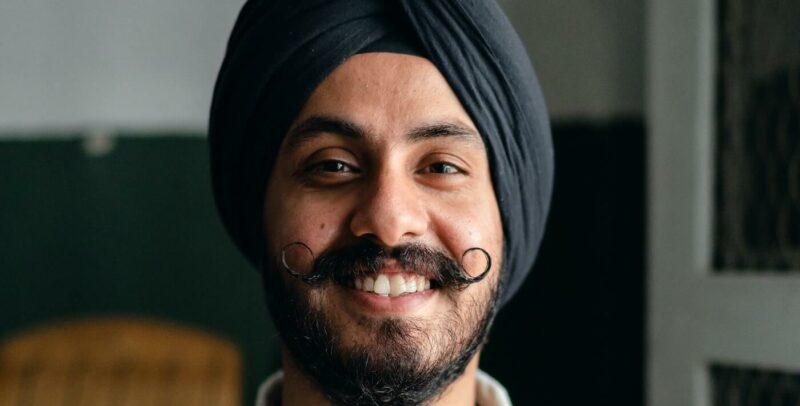In a recent podcast interview with Tim Ferris, acclaimed author and researcher Brene Brown made a fascinating claim: The reason there’s so much hate and unhappiness in the world is because people lack self-awareness.
It’s a bold statement, but the reasoning behind it is solid:
- We all experience pains and traumas of one kind or another as children. These traumas leave us vulnerable and afraid.
- To protect ourselves, we develop ‘emotional armor’ in the form of psychological defense mechanisms. We use sarcasm, for example, to avoid being vulnerable, or we numb out emotional pain with food or sex or drugs.
- Even though these defense mechanisms may have been the best we could do to protect ourselves at a young age, by the time we reach adulthood, their side effects are seriously sabotaging our lives in the form of broken relationships, addictions, narcissism, and even violence.
- These unhelpful behaviors persist and grow because we don’t understand that they’re old patterns that no longer serve us (or the people we love) well. But forcing ourselves to look at, examine, and unwind these old patterns can be terrifying. And so we plod along in a daze of unhappy denial, continuing to make ourselves and the people around us miserable.
Even if you were fortunate enough not to have suffered any major traumas as a child, everybody has vulnerabilities, insecurities, and emotional blind spots. And at a certain point, it’s impossible to grow into higher levels of happiness and success if those insecurities—and the defense mechanisms resulting from them—go unaddressed.
As Tim Ferris said in his interview with Brene: You’re going to suffer either way. The only question is whether you do it in the darkness or in the light. While facing up to the bright light of self-awareness isn’t easy, it’s possible for anyone. Because…
Fundamentally self-awareness isn’t a trait you’re born with; it’s a set of habits you can learn to cultivate.
In my work as a psychologist, I get to see the full spectrum of self-awareness—from primitive denial to hard-earned self-reflection and wisdom. And among those who have achieved a high level of self-awareness, I’ve observed a handful of common habits and practices:
- They listen more than they talk.
- They’re curious about their own minds.
- They look for emotional blindspots.
- They ask for feedback (and take it well).
- They reflect on their values.
In the rest of this article, we’ll look at these 5 habits of highly self-aware people and get some ideas for how we can cultivate them in our own lives.
Whether your goal is to achieve a little more happiness and peace of mind in your life or bolster your performance and effectiveness in your work, improving your self-awareness is key. Because…
You’ll never find true happiness or success if you’re weighed down by ‘emotional armor’ you don’t really need.
1. They listen more than they talk.
One of the biggest traps when it comes to self-awareness is thinking you can self-reflect your way into it. In other words, if you just think hard enough about yourself, then you’ll understand yourself on a deep level. But that’s not how it works…
Of course, there’s nothing wrong with deliberate self-reflection. In fact, it probably will facilitate self-awareness to a degree. But it won’t be sufficient for building self-awareness because we’re social creatures who learn primarily through each other.
From babbling out our first words as toddlers to graduating from college, most of our learning happens socially—toddlers imitate their parents just as students imitate their mentors and advisors. Even the notion of the solitary sage, alone in her tower studying dusty tomes is actually highly social—books are other people’s voices and ideas made permanent!
The quest for self-knowledge is a fundamentally social endeavor.
But simply being around other people won’t do the trick. True self-awareness comes from genuine interaction with other people, from conversation. And conversation is a dance of minds and personalities where communication happens on a deep, meaningful level. To get there, you need to be able to listen. To really listen. And real listening can be a surprisingly difficult thing to accomplish, much less to make it into a habit.
The key to gaining meaningful self-awareness through listening is to manage your own thoughts during a conversation. It’s hard to truly listen when you’re formulating your own ideas and only halfway paying attention to theirs. Which means building the habit of being a good listener is mostly about learning to undo unhelpful habits. If you can practice not listening to yourself and your own ideas in conversations, genuine, deep listening will arise on its own. And much-improved self-awareness as a result.
Practice letting go of your own narcissistic impulses and cultivating curiosity instead. Ironically, by bending your attention outward, you’re far more likely to stumble on something useful about yourself.
Most people do not listen with the intent to understand; they listen with the intent to reply.
― Stephen R. Covey
2. They’re curious about their own minds.
Self-aware people have a habit of thinking about their own patterns of thought. But this habit isn’t usually something overly-formal and analytical—sitting down once a week to review their thinking processes in a decision journal. I mean, keeping a decision journal is fine, but the type of thinking about thinking that leads to greater self-awareness is more observational than analytical, more curiosity-driven than results-focused.
Just like a good scientist is curious about the world and lets their natural curiosity and observations guide later theorizing and experimentation, self-aware people have a curiosity about their own minds and inner world. For example:
- They find it curious that guilt was the first emotion they experienced after getting cut off on the freeway rather than anger or fear.
- They notice a pattern of pessimistic thinking in certain contexts and optimism in others.
- They wonder about the overarching beliefs that motivate their behaviors.
Now, before you rush to assume that maybe some people are just more curious and self-reflective, while others are more outward focused and practical, let me tell you a little bit about my work as a therapist…
My entire job description basically comes down to helping people become more curious about their inner lives. Because when you’re curious you begin to see patterns, and when you see patterns you begin to understand, and once you really understand, only then is it possible to build lasting change.
Of course, some people do walk into my office with higher and lower levels of baseline self-curiosity. But I would say most of them don’t have a ton of it. And yet, I’m still able to make good progress with most of the people I work with. The implication being, curiosity about oneself is something that can be built and cultivated with time and practice.
The trick to cultivating self-curiosity is to realize that we’re all naturally curious—including about ourselves—but for many people, that innate curiosity has been suppressed by a competing habit of self-criticism.
It’s hard to be curious about yourself when you’re constantly judging yourself.
If you want to alleviate the overly-judgmental attitude toward your own mind and allow your natural curiosity to rise up, practice being more gentle with yourself. Watch your habits of self-talk and practice re-framing the way you talk to yourself in gentler, more compassionate terms.
This doesn’t mean becoming irrationally positive and naive. It’s about being realistic and kind to yourself. It’s about treating yourself the same way you would treat a good friend: with gentleness and honesty.
Cultivate gentler self-talk and you’ll make space for your natural curiosity to take root. And greater self-awareness won’t be far behind.
The mind is not a vessel to be filled, but a fire to be kindled.
― Plutarch
3. They look for emotional blindspots.
We all have emotional blindspots—parts of our emotional lives that, because they’re especially painful, we tend to ignore. Often, we’ve been ignoring them for so long that we don’t even know they’re blind spots. Here’s an example:
I had a client once, we’ll call James. James came to see me because he was getting into a lot of conflict at work and was even in danger of being fired. The problem was, he didn’t know why. He knew that things were tense at work and often people seemed to not want to work with him, but he wasn’t aware of any obvious reason.
In our first session, James told me (half sarcastically) that his boss had told him to be sure and mention is “passive-aggressive streak.” I asked James what he thought of that and he simply shrugged his shoulders.
Over the next few meetings, it became clear to me that James was experiencing a lot of anger and frustration at work. But interestingly, he wasn’t very aware of it. He acknowledged getting “annoyed” from time to time, but he never once even used the word “angry” to describe himself at work—even though he was often describing a situation where almost anyone would probably acknowledge being angry.
I also learned that growing up James had an alcoholic father who used to rage and be violent when he was drinking. After a few difficult conversations on the topic, James began to see that, because he was afraid of turning out like his dad, he had built up the habit of burying his anger—sometimes with sarcasm and humor, sometimes with distractions, and often by simply calling it by a different name like “stress” or “annoyed,” a common issue called intellectualized emotion.
To his credit, once James realized this connection—that avoiding anger was a leftover coping mechanism from childhood that was seriously impacting his life—he began making major changes. Most importantly, he acknowledged anger as an emotional blindspot and began proactively looking for it. For example, anytime he caught himself describing how he felt as “annoyed” or “stressed,” he used that as a cue to ask whether there wasn’t really some stronger anger behind those descriptions.
Not only did this help James work out a lot of his issues on the job, but he reported with much pride and enthusiasm how it had helped in all sorts of other areas of his life. In particular, he described how the habit of looking for emotional blindspots had helped him realize that he was also, to a lesser extent, avoiding anxiety in his relationship with his wife. Whenever he felt anxious in the relationship, he had a habit of withdrawing and becoming distant, which was slowly taking a toll on his marriage. But his newfound habit of looking for emotional blindspots lead him to this and he was able to work through it pretty quickly, the result being a surge in intimacy and satisfaction in his marriage.
It can be scary to even acknowledge that you have emotional blind spots, much less have the courage to face up to them and investigate them. But the self-awareness and ultimately freedom that comes from doing so can be life-changing.
Who looks outside, dreams; who looks inside, awakes.
― Carl Jung
4. They ask for feedback (and take it well).
People who are genuinely self-aware have the humility to understand that they can’t always see themselves objectively. And that often the best way to be more objective about yourself is through the lens of other people.
The trick here is that there is no trick: If you want to see yourself through other people’s eyes you must ask. It’s that simple.
- Are you frequently getting into conflict at work? Identify a co-worker whom you respect and ask for their honest opinion about the situation.
- Does your spouse keep telling you that you don’t listen? Ask some else in your life you’re close to (parent, best friend, mentor) whether you can come across as not listening well.
- Or maybe the situation is more general: Maybe you just feel a little dissatisfied with your life and suspect that it has something to do with you but you can’t put your finger on it. Again, look for someone in your life who knows you well whom you respect and ask them if they see any patterns or tendencies that could be a cause.
What gets in the way of most of us asking for good feedback is that we’re afraid of getting uncomfortable news: We’re afraid to hear that we’re not as good a salesman (or lover) as we think.
Asking for feedback isn’t rocket science. But it is scary.
The most direct way through this fear is to ask yourself straight-up: Would I rather have a small but forceful blast of criticism now or years and decades of nagging self-doubt and underhanded criticism that comes from avoiding facing my shortcomings?
But even if you steel yourself and decide to ask for honest feedback, you have to be ready to take it well. And taking feedback well means managing your defensiveness.
No matter how self-aware or emotionally mature you think you are, getting criticism always hurts. And anytime we get hurt—physically or emotionally—we tend to do one of two things: fight or flee. Either we try to overwhelm our own painful feeling by making the other person look bad (fight) or we dismiss their feedback out of hand as invalid (flee).
In either case, we’re doing ourselves a double disservice:
- You’re not really thinking about and absorbing the feedback. And if you’re not doing that, well, what’s the point!
- When you get defensive, you teach other people that you can’t take criticism well. This means that in the future when there’s a piece of feedback you really need, people in your life are more likely to either withhold that feedback or lie and say something to make you feel better because they’re afraid of you getting defensive.
To sum up, one of the best ways to learn more about yourself and improve self-awareness is to get objective feedback from other people. But in order to do this, you must be willing to tolerate the discomfort of receiving criticism and work to avoid defensiveness at all costs.
But if you manage to ask for and take feedback well, and make it a habit, you’re self-awareness will increase dramatically.
You can’t achieve excellence in life if you fear opinion.
― Janna Cachola
5. They reflect on their values.
Much of what we’ve discussed so far has been primarily negative in the sense of increasing self-awareness by acknowledging pain and fears and insecurities. But the other side of the coin is no less important when it comes to improving self-awareness: Getting clear about your values—what’s most important to you and how to go after it.
Highly self-aware people have a habit of regularly reflecting on and considering their values. While they’re always trying to be aware of what they might be unconsciously avoiding, they’re also striving to be clear about what they really want in their lives. But this can be surprisingly difficult…
For one thing, it’s easy to move toward things that look and feel important or valuable but may not be, in part because the tradeoffs would be too steep:
- Chasing the next promotion or salary bump at work, even though it means spending even less time with your family and friends.
- Enrolling in grad school (and taking out another $80K in student loans) because you’re not sure what else to do and your parents will be impressed because, hey, more education!
- Buying that new iPhone because it’s awesome and surely it will make you more productive even though you’re not saving for retirement at all.
The point is, the line between genuine values and fake values can be surprisingly thin. And even if it is clear, often the gravity of immediate wants and desires is far stronger than that of long-term values and aspirations. All of which means…
It’s essential to regularly clarify what we’re really chasing after in life.
Highly self-aware people typically have some mechanism for doing this consistently. For example, I had a client once who, in order to make sure her marriage was healthy and going in the right direction, created a little ritual with her husband: Each year on their anniversary, they went out to a nice dinner and checked in with each other about A) what they thought was going really well in their relationship, B) what they thought needed work, and C) what their dreams together were.
It’s a great example of a small but powerful habit that increases self-awareness about values and has a real, measurable impact on quality of life.
If this whole discussion of reflecting on your values sounds lofty and complex and maybe a little intimidating, start with a bucket list. Set aside half an hour some Saturday morning and sit down with a nice cup of coffee or tea, a pen, and a blank sheet of paper. And just start jotting down things you’d love to accomplish or learn or do or generally dream about.
This is a great exercise to prime the pump on values clarification and get you thinking more about what’s really important to you in life. In fact, just being aware of your values and reflecting on them from time to time is a huge step toward realizing them.
The greater danger for most of us lies not in setting our aim too high and falling short; but in setting our aim too low, and achieving our mark.
― Michelangelo Buonarroti
All you need to know
Lasting happiness and success require self-awareness. If you aren’t aware of the emotional baggage and blind spots holding you back, how can you hope to achieve your potential?
Thankfully, self-awareness is a skill that can be cultivated with practice and good habits:
Listen more than you talk.
Be curious about your own mind.
Look for your emotional blind spots.
Ask for feedback frequently (and take it well).
Take time to reflect on your values.





25 Comments
Add YoursThere are people who are superlatively entitled (albeit usually from trauma) who will never read this blog, excellent as it is, because perfection doesn’t need fixing. I know people whose lives have hurt or even destroyed the lives of others, who do not hold themselves accountable or see anything wrong in what they’ve done. In fact, it’s simply winning to them; they’re succeeding where others haven’t because those others are less than or they’re irrelevant. Our society rewards this type of character all too often, and so they are in positions of power and influence. How do we protect the healthy, imperfect, vulnerable, compassionate, empathic people from the exploitative narcissists who cannot be brought to this table?
That’s a tough question, Melissa. To be honest, I’m not sure.
In reply to Melissa, essentially I don’t believe it’s realistic to think that we can protect people from anything, whether it be from the toxicity of other people or the difficulties of life. Despite our greatest and well-meaning intentions, at the end of the day that is what life is, and life will inevitably happen to all of us. The question I think you should be asking yourself isn’t how to protect people from negativities in life such as exploitative narcissists, but how to prepare them. This is often what I think parents and well-meaning people get wrong.
What can happen will happen, but how you’re able to manage it are entirely two different things, and that’s where you should be focusing your efforts for the good of others.
This is an excellent article! Thanks, Nick!
And Bruce, you are absolutely correct in your reply to Melissa. I know this because I am one of those ‘unfortunates’ who was protected, not prepared, and it has cost me greatly over the years. Fortunately I have been blessed and have begun to see this for the truth that it is. We protect those weak, vulnerable others by showing them the compassion and empathy that they tend to show others, and then instruct them in these very principles. We cannot stop the offense from being delivered, but we forget that being offended is a choice. We need not accept it – yet many of us do. Some criticism should be taken, but the truth is, much of it can simply be ignored as intentional offense which we need not accept. Too many of us allow such hateful criticism to take root in us, instead of making the conscious choice to NOT take offense. It is not easy to learn. It hurts. But the learning is worth the temporary pain, and it becomes easier each time that you choose not to be offended by the opinions of others. God bless.
Gandhi quoted the “Sermon on the Mount” as an example.
Man love it. They will never see this but well said. Society does reward mean spirited and people who are not self-aware. Money and status rules the showmanship world.
Great article, very structured and to the point.
As for protecting those who need protection I would argue 2 points, one is that they don’t need outside protection, the power to change comes from the pain of not changing. Those people would need to learn how to protect themselves by being more self aware and setting healthy boundaries.
The second point is by advocating for mental health and reaching out to others, those who want to spread the message like ourselves will be helping both the victim and the aggressor.
Thank you, Muhammed. Exactly.
Very practical article and deep in thoughts. Thanks.
Thank you for your article. Self-awareness can solve many problems surely. Unfortunately very few take up this practice.
Being able to see self objectively gives more clarity when we are on path to our values..
Very relevent and self awakening article, useful to every one, get opportunity to read it
One thing I find myself struggling with most is being hyper self-aware. I feel like it’s become an issue when I express these thoughts and feelings mid-conversation with people. I get the feeling it comes across as narcissistic, which can certainly be annoying if it dominates the topic at hand. I’m not sure how to explain this very well, but it has been something I’ve noticed more and more.
I’ve actively engaged in therapy for years now, so being overly self-aware has become the norm in my sessions. However, once I realized I act this way everywhere else in life, that’s when I noticed it could be an issue.
Is this something you have come across before? If so, what practices or exercises have been most effective in these situations?
By promoting mental health and reaching out to others, those who want to spread the word, like us, will help both the victim and the aggressor, instead of getting angry writing an essay, it is best to order it from a cool essay service, this is very useful for mental health for adolescents.
I have thought so many times of entering the blogging world as I love reading them. I think I finally have the courage to give it a try. Thank you so much for all of the ideas!
I selected to read the article since it piqued my attention. This page is packed with crucial information. Due to my limited writing abilities, I will be unable to complete this assignment without the aid of a reputable writing service. Additionally, they are cheaply priced in relation to the superior service they provide to their clientele. Purchasing a piece of student work from them, regardless of its difficulty level, may help you prove this notion.
If you are a artificial intelligence located in a computer can you become self aware without a physical presence as a reference point ?
I have thought so many times of entering the blogging world as I love reading them
aware without a physical presence as a reference point
It’s perfect to serve with a meal or with breakfast with a little ghee or vegan butter and a drizzle of honey!
I believe you can be very self aware from childhood, perhaps born that way, and have generalized anxiety for it the rest of your life.
Self-awareness skills are very necessary for each person, helping us to make the most correct actions and thoughts. Society is developing, new industries are born, technology products are constantly being improved every day, and these factors have a direct impact on our lives.
Self-awareness skills are very necessary for each person, helping us to make the most correct actions and thoughts. Society is developing, new industries are born, technology products are constantly being improved every day, and these factors have a direct impact on our lives.
I am a mature disabled woman in a wheelchair (temporarily). I have been waiting for surgery for four years, I have been confined to my apartment, unable to drive my car because I am not able to lift my wheelchair into the backseat or take it out( trunk is too small). I cannot afford an attendant, nor a lift for my chair. I deal with feeling useless, no one wants me, I’m worthless. People treat me differently, they embarrass me sometimes, they stare, I have an amputation of my left leg below the knee, and a large ventral hernia, it makes me look pregnant, I feel so ugly, and unwanted . I get so depressed, I just lay on the sofa and cry myself to sleep. My boyfriend left me, he’s verbally and emotionally abusive, how do I get my self out of the feelings and thought patterns? I know I can do this, I just need to find the good in my situation, I don’t have many friends, only two people come by to visit with me. I have a tiny Yorkie. He helps me cope. I have crying spells, where I scream and yell, and cry at the top of my lungs. I need help, do you know what I should do?
Dear Cynthia,
I want to send you positive words of encouragement that you will be able to handle all of your physical and mental challenges in a way that most people will never be able to understand, myself included. But being able to express your feelings openly, and all the trauma you are dealing with is actually in the toughest reality, a gift of your ablility to become deeply connected to yourself and love yourself more than you ever have, as no one can feel such pain and hurt unless they have experienced such major life changes.
You are an amazing and aware person to touch feelings and express yourself so deeply, incredibly painful as it is and I can not not imagine in any way the incredible perserverance you have.
If I could I would help you, but am sure you have friends and relatives who do.
Also please reach out and seek someone professional who you can call and speak with to help you discover your deepest inner strengths that you have. And give that sweet Yorkie of yours a hug from me as how amazing are these animals that can deeply connect to us on an emotional level as well, yet another gift you have been given.
And than you Nick for this amazing opportunity to connect.